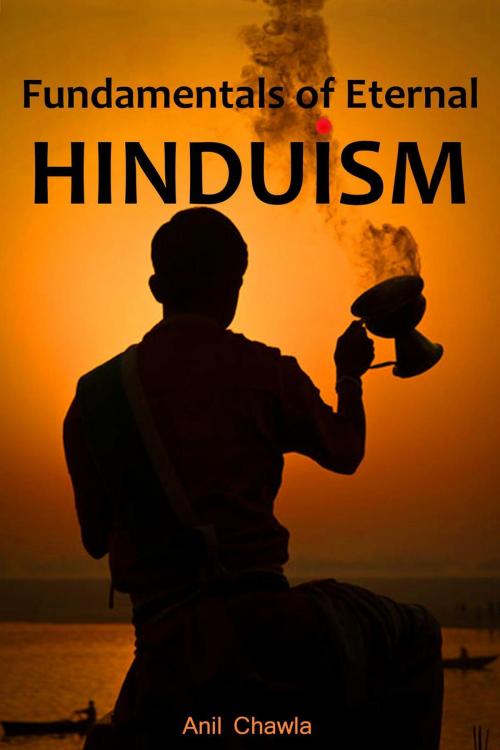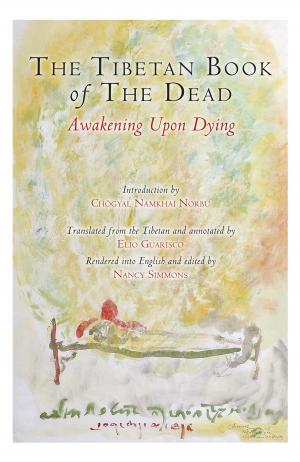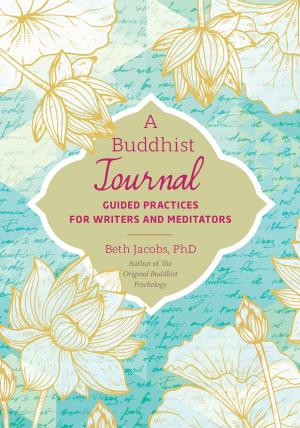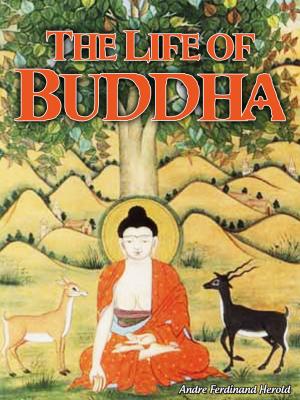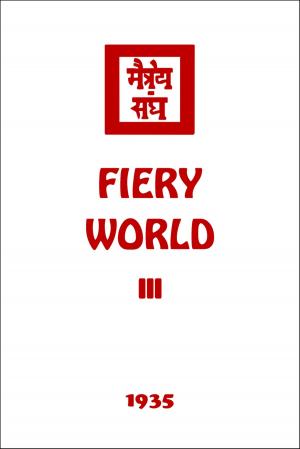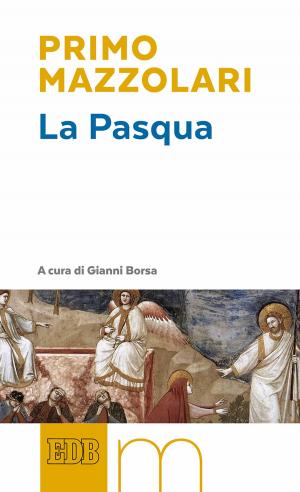Fundamentals of Eternal Hinduism
Nonfiction, Religion & Spirituality, Eastern Religions, General Eastern Religions, Philosophy, Eastern| Author: | Anil Chawla | ISBN: | 9781386721253 |
| Publisher: | Anil Chawla | Publication: | May 15, 2018 |
| Imprint: | Language: | English |
| Author: | Anil Chawla |
| ISBN: | 9781386721253 |
| Publisher: | Anil Chawla |
| Publication: | May 15, 2018 |
| Imprint: | |
| Language: | English |
Hinduism existed before Ram as well as Krishn. Hinduism has always been and shall always be. It is truly an eternal religion.
Hinduism is a philosophical system or paradigm which is based on relationship of individual with the cosmos in a non-adversarial manner. Man (including woman) is part of the cosmos. An individual has no existence independent of one's family, society and the whole cosmos. Hindu thought emphasizes each one living in a manner that contributes to the growth of the larger whole.
Hinduism with its emphasis on relationship with the cosmos may well said to be a nature-based religion. Respecting and nurturing nature is essential to Hinduism. A Hindu sees sun, moon, trees, earth, rivers, mountains, fire and all one's fellow human beings as manifestations of the cosmic reality of which man is a part.
Hinduism is truly a global religion. In some form or the other a thousand years ago it existed in every part of the world. Shintoism of Japan, Taoism of China, religions of American natives, various African religions and so-called pagan religions of Europe – all are different forms of Hinduism even though their followers today may not like to look at it that way.
Sadly, even Hindus do not see their religion in that way. Some so-called Hindu organizations of India wish to restrict Hinduism to people living in or having allegiance to the landmass known as India. They claim to be well-wishers of Hinduism but are in fact doing damage to the great eternal global religion by restricting it to a country.
While it is true that India was an important and even central place for Hindu thoughts through centuries, the thought and scholarship had contributions from every part of the world. Indian universities exchanged thoughts without any boundaries.
This book treats Hinduism as a comprehensive philosophical system which treats the cosmos and individual as one. The book is divided in two parts. The first part gives the theoretical framework which defines Hinduism. The second part gives practical direction about living one's life.
This is a religious book like no other. Hinduism in this book is a practical down-to-earth religion without any fancy esoteric parts. In a way, Hinduism of this book is non-spiritual. There is no talk of discovering oneself or meditation or aiming for life beyond this world.
Noticeably, this book does not promise to lead the readers towards moksh or salvation. In fact, the author does not seem to even accept moksh. He sees moksh or salvation as a Buddhist imposition on Hinduism.
The book also rejects Vedanta, the commonly accepted ideology which is considered by some as essential philosophy of Hinduism. The author blames Vedanta for the downfall that Hinduism has experienced over the past thousand years.
Hinduism, in this book, is about relationships, resources and pleasures of life. The primary priority is surely relationships but wealth and prosperity are not deprecated. Being rich is seen as a worthwhile objective.
Hinduism, unlike Christianity, does not treat sexual relations as sin. One's sexual desires must be lower on the priority scale as compared to one's duties and one's efforts for resource accumulation; but denying the desires is a clear no-no. Celibacy as a way of life is alien to Hinduism described in this book.
This book will change your attitude to life and also to everyone around you. It will help you be a more balanced person contributing to the well-being of your family, your society and also your country and the world. In short, the Hinduism of this book is about living life to the fullest as a man / woman of the world.
The book has 92,500 words. It is a massive book which is being offered at a very low introductory price.
Hinduism existed before Ram as well as Krishn. Hinduism has always been and shall always be. It is truly an eternal religion.
Hinduism is a philosophical system or paradigm which is based on relationship of individual with the cosmos in a non-adversarial manner. Man (including woman) is part of the cosmos. An individual has no existence independent of one's family, society and the whole cosmos. Hindu thought emphasizes each one living in a manner that contributes to the growth of the larger whole.
Hinduism with its emphasis on relationship with the cosmos may well said to be a nature-based religion. Respecting and nurturing nature is essential to Hinduism. A Hindu sees sun, moon, trees, earth, rivers, mountains, fire and all one's fellow human beings as manifestations of the cosmic reality of which man is a part.
Hinduism is truly a global religion. In some form or the other a thousand years ago it existed in every part of the world. Shintoism of Japan, Taoism of China, religions of American natives, various African religions and so-called pagan religions of Europe – all are different forms of Hinduism even though their followers today may not like to look at it that way.
Sadly, even Hindus do not see their religion in that way. Some so-called Hindu organizations of India wish to restrict Hinduism to people living in or having allegiance to the landmass known as India. They claim to be well-wishers of Hinduism but are in fact doing damage to the great eternal global religion by restricting it to a country.
While it is true that India was an important and even central place for Hindu thoughts through centuries, the thought and scholarship had contributions from every part of the world. Indian universities exchanged thoughts without any boundaries.
This book treats Hinduism as a comprehensive philosophical system which treats the cosmos and individual as one. The book is divided in two parts. The first part gives the theoretical framework which defines Hinduism. The second part gives practical direction about living one's life.
This is a religious book like no other. Hinduism in this book is a practical down-to-earth religion without any fancy esoteric parts. In a way, Hinduism of this book is non-spiritual. There is no talk of discovering oneself or meditation or aiming for life beyond this world.
Noticeably, this book does not promise to lead the readers towards moksh or salvation. In fact, the author does not seem to even accept moksh. He sees moksh or salvation as a Buddhist imposition on Hinduism.
The book also rejects Vedanta, the commonly accepted ideology which is considered by some as essential philosophy of Hinduism. The author blames Vedanta for the downfall that Hinduism has experienced over the past thousand years.
Hinduism, in this book, is about relationships, resources and pleasures of life. The primary priority is surely relationships but wealth and prosperity are not deprecated. Being rich is seen as a worthwhile objective.
Hinduism, unlike Christianity, does not treat sexual relations as sin. One's sexual desires must be lower on the priority scale as compared to one's duties and one's efforts for resource accumulation; but denying the desires is a clear no-no. Celibacy as a way of life is alien to Hinduism described in this book.
This book will change your attitude to life and also to everyone around you. It will help you be a more balanced person contributing to the well-being of your family, your society and also your country and the world. In short, the Hinduism of this book is about living life to the fullest as a man / woman of the world.
The book has 92,500 words. It is a massive book which is being offered at a very low introductory price.
